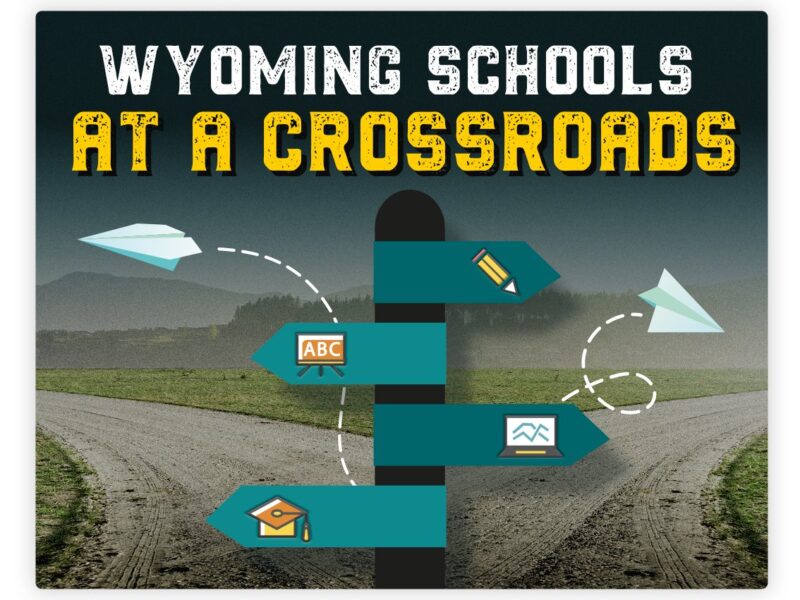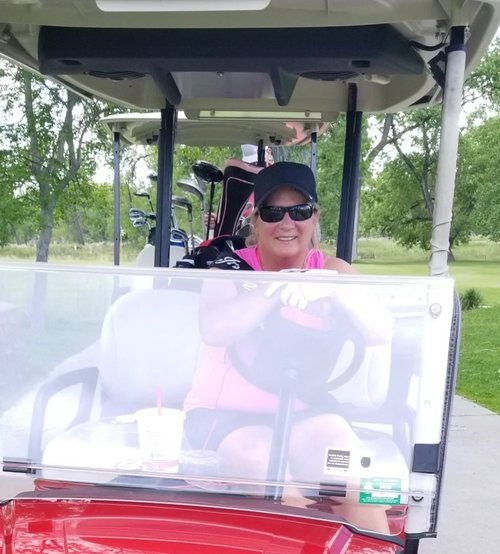WYOMING SCHOOLS AT A CROSSROADS: High School Students’ Dependence on Phones Exacerbated by Pandemic (Part 3)
Teachers say students show signs of mental health issues
- Published In: Other News & Features
- Last Updated: Mar 21, 2023

By Elizabeth Sampson
Special to the Wyoming Truth
This is the third part of the Wyoming Truth’s Q&A series with educators from across the state about how the COVID-19 pandemic has impacted students of all ages. Check out part one, which focused on preschoolers, and part two, which focused on elementary and middle school students.
Lisa Wille-Racine is a Spanish teacher who has taught at Torrington High School for the last seven years as part of her nearly 40-year career in Wyoming and Colorado. David Porter teaches 11th and 12th grade International Baccalaureate English language and literature at Teton Science Schools in Jackson. Both say high school students continue to grapple with a dependency on their phones, which intensified through social distancing and reliance on virtual gatherings during the pandemic. They say more time on social media has led to mental health issues and a stifling of in-person interactions.
How do you compare student behavior pre-COVID to now? Have you observed any differences?

Porter: I don’t know if it’s COVID-related so much as just how much electronics have changed the last 15 years. There’s a high dependency on hand-held devices. I use that term dependency conservatively, but I do think students have a dependency on their phones. I think that online dependency was exacerbated during COVID-19 lockdown, because that was the way we all communicated. We weren’t going to friends’ houses, we weren’t going out to dinner together. If we were going to have a social gathering, it was in a virtual setting.
Wille-Racine: To me, the pandemic wasn’t really the shift in students, per se. That first semester was, but as far as now, I don’t think so. [Student] behavior has been on track with how kids have changed in the last 10 years.
I think what’s changed is definitely social media. . . . They’re on so many different platforms. TikTok is the worst. We fight the phones. It’s really difficult in high school to get these kids to put their phones away. It’s really difficult for their parents to understand that it’s not OK to call them during class. When we take [students’] phones away, [parents] are mad at us.
One of the major [changes] for me has been their urgency or immediacy. They want immediate gratification. They will tell you school is boring. They want instant feedback. They want to be entertained. There’s one teacher who is trying to learn to how to play a video game to relate to her students.
That has been really difficult for a lot of teachers to understand. It’s not that you have to entertain them, but you have to be ready for their learning styles, the way they react. It has to be relative; it has to be real for them.
How is their mental health? Do you see more anxiety or depression in students?
Porter: I do think that it did have some mental health impact. We know from psychology that it’s so crucial in adolescence for peers to have that time together. I wouldn’t want to try to diagnose anything, because I don’t have that kind of background, but withdrawing some, signs of depression, signs of anxiety for sure.
Wille-Racine: In Torrington High School in the last three years, I [believe] we’ve had two or three [suicides], but it’s pretty big for a small community. . . . It’s something as educators we need to put on the forefront … I just think it’s a social media impact more than the pandemic.
I think it was coming. I think it was the perfect storm. [The pandemic] maybe hastened it with kids being isolated, but I think it was coming anyway.
Education is about socialization, and education is about lots more than just standards. There’s just way more that plays into it that doesn’t happen when you take that away. . . . The building means community, and it means that friendly face. It means that protectiveness that a teacher provides. If it gets taken away, you bet you feel insecure; you bet you’re scared. The older kids maybe not as much, but I think people would argue they felt it more.

. . . When I first came to Wyoming, I didn’t feel like there was enough suicide prevention. We’ve had Sources of Strength training, and we’ve had the OK to Report training. It’s a really good start as far as addressing the mental health issues.
Many schools turned to virtual learning during the pandemic, and many virtual options are still available. Do your students like it?
Porter: As a teacher, I get in there one-on-one. We look at their work together. I point out strengths and weaknesses and show them models to help them improve their work, and that’s a little more difficult to do if it is asynchronous online. If a student submits a paper to me and I make comments on that paper, and they go back to it a day later, I feel like there is something lost there. It’s not the same as having the conversation in the classroom or in my office. I think there were some delays there in terms of their literacy development. We’re working hard to catch up.
From my perspective, students in 12th grade this year do not have the close reading skills I normally see in students their age. Without close reading skills, there is a reduced level of literary analysis typical of a 12th grade student. Additionally, this class lacks some fundamental understanding of key literary devices: symbolism, metaphor, etc. Is the above due to COVID impacts? Prior learning? I don’t think we can pin the answer on a single source.
Wille-Racine: I think a high percentage of them really appreciate school more. When they got back, they were happy to see their teachers and their friends. A large percentage of them, when we do have a virtual day, say, “I’d really rather do school.” The Zoom is tough. You want to talk about getting left out? It’s hard to acknowledge every single kid when you can’t really see them. When you are in class, you can see their eyes, you can see their expression, see how they feel. You can almost feel when they are not getting it—or you’ve got to shift gears.
What do you hope for these students as we look to their future?
Porter: I hope they don’t have to go through this kind of thing again. . . . Even though lockdown was a major disruption to life, as a family it was incredibly valuable and rewarding because we had all that time together. I hope young people will see the value in that, too. They had a chance to spend time with their parents that they might not have had otherwise. Of course, I’m hopeful they will have the drive to leave home and go to college, and not be fearful of what might be there. We can’t predict what’s going to happen.
I’m hopeful students understand that something so microscopically tiny brought the world to its knees in an instant. That’s incredibly powerful.
Wille-Racine: I hope they find something that they love to do as much as I have.
What do you hope people will understand about these young people?
Porter: I think it is important people understand they are emotional just like all of us. They need love and support like everybody does. I think whether it’s intellectual or how education has changed over the past couple of generations, they’re way more advanced academically than we were.
While Jackson is a place of wealth, and a number of our families represent that demographic, students do not necessarily fall into a place of entitlement. The school, the teachers and the students’ parents all set high expectations, which the students nearly always meet.
Wille-Racine: I think we have a lot of potential. I think the kids are interesting. There’s some of them that have their little pieces of struggle, but in general, kids are fun. They want to learn. They try. I just think people have this really negative view of what happens in school. I don’t think you would feel that way if you spent a day with me. There’s lots of good stuff going on. Don’t slam the schools and don’t slam the kids for what’s going on socially. I think everybody’s trying hard to do the best they can.
Check back for part four, coming to you soon.













